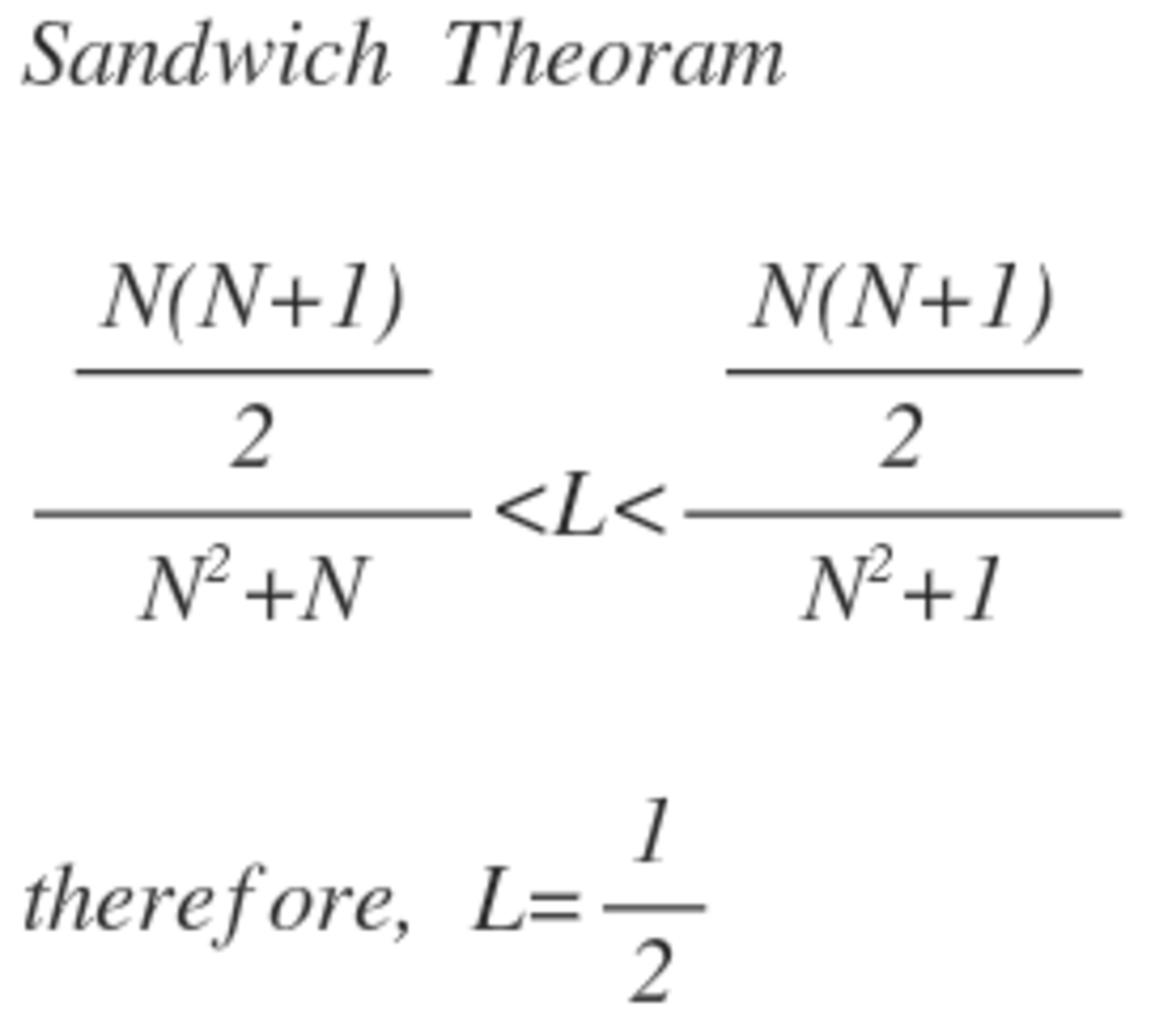Limitless
N → ∞ lim ( N 2 + 1 1 + N 2 + 2 2 + N 2 + 3 3 + ⋯ + N 2 + N N ) = ?
The answer is 0.5.
This section requires Javascript.
You are seeing this because something didn't load right. We suggest you, (a) try
refreshing the page, (b) enabling javascript if it is disabled on your browser and,
finally, (c)
loading the
non-javascript version of this page
. We're sorry about the hassle.
1 solution

Doubt: How can a number L exist between two same quantities? Is there a typing mistake?
Log in to reply
Its a typing mistake. I am correcting it .thnx
Log in to reply
By sandwich theorem , you meant squeeze theorem?